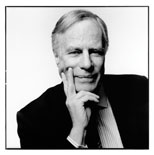Macbeth, Welsh National Opera, WNO, Cardiff, September 2016
Posted on 11 September 2016Of Verdi’s three Shakespeare works — the others are his final operas Otello and Falstaff — this marks something of a turning point in his career, and its 1847 premiere in Florence was a huge success.

Macbeth and witches, all images WNO/ Richard Hubert Smith
In this staging by Oliver Mears, first performed in 2014 by Northern Ireland Opera where he is artistic director, eleventh century Scotland has been updated to the twentieth century complete with kilts and the St Andrew’s Cross. Not a situation Nicola Sturgeon would recognise, but the oppression, intrigue and murder fits very well with a distant peninsula in East Asia, albeit without a coldly calculating Lady Macbeth. Here she is portrayed as a woman who spends liberally on clothing and shoes, like a young Imelda Marcos, and her coldness seems to extend to those around her, notably her husband. The difference in their heights — she is taller than him — works to the advantage of the production, and after a slightly nervous start Mary Elizabeth Williams was the real deal, her commanding vocal presence balanced by the emotional charge of her soliloquy in Act II.

The banquet: Macbeth, Lady Macbeth and Macduff
With the strong coolness given to Lady Macbeth in Mears’s production, Luis Cansino sang the title role with justifiable insecurity but firm vocal line, a fine portrayal of a weak man who sees the elimination of rivals as his guarantee of power, the noble bass of Miklós Sebestyén as Banquo but an early example. By contrast the huge power of the chorus, helped in Act IV by the sight of refugees and a backdrop showing those the regime has eliminated, creates a feeling that humanity will eventually triumph against the worst of the world’s despots, albeit at great cost. In this context the singing of Martin Lloyd as the doctor, and Miriam Murphy as the Lady-in-Waiting showed beauty within the darkness, and Bruce Sledge as Macduff delivered his anguished Act IV aria with heroic timbre.

Wealth and power for Lady Macbeth
Conducting by Andriy Yurkevych brought out the energy and rhythm of the music, and Verdi’s representation of the witches as vocal ensembles gives scope for choreography, which worked well under the direction of Anna Morrissey. Their meeting with Macbeth in Act III was rather effectively presented as if in a dream, and though the later movement of Birnam Wood was lacking, the final murder of Macbeth reminded me of the fate of two recent dictators who saw it coming all too late.
After further performances in Cardiff later this month, Macbeth moves to The Bristol Hippodrome, 12 Oct; New Theatre Oxford, 26 Oct; Mayflower Theatre, Southampton, 2 Nov; Birmingham Hippodrome, 9 Nov; Venue Cymru, Llandudno, 23 Nov — for details click here.

